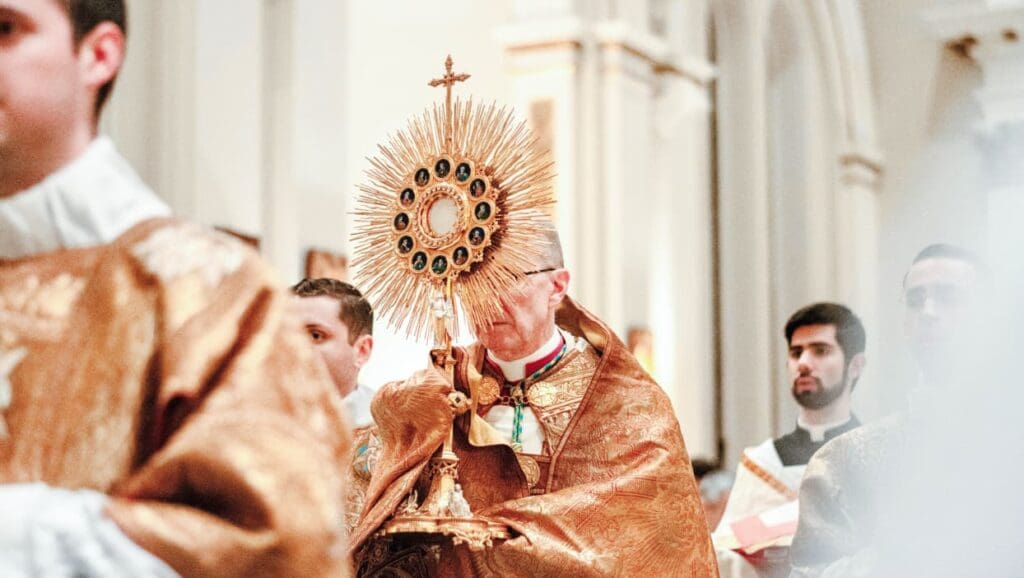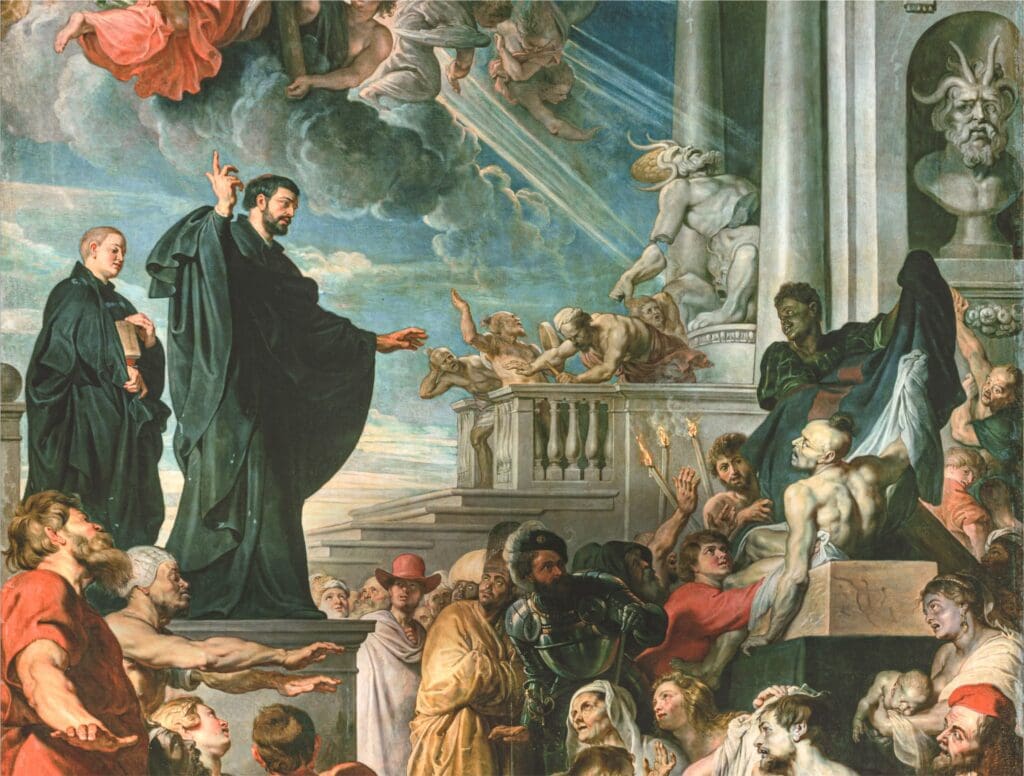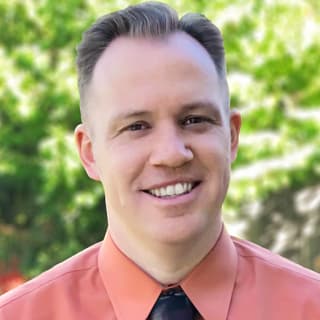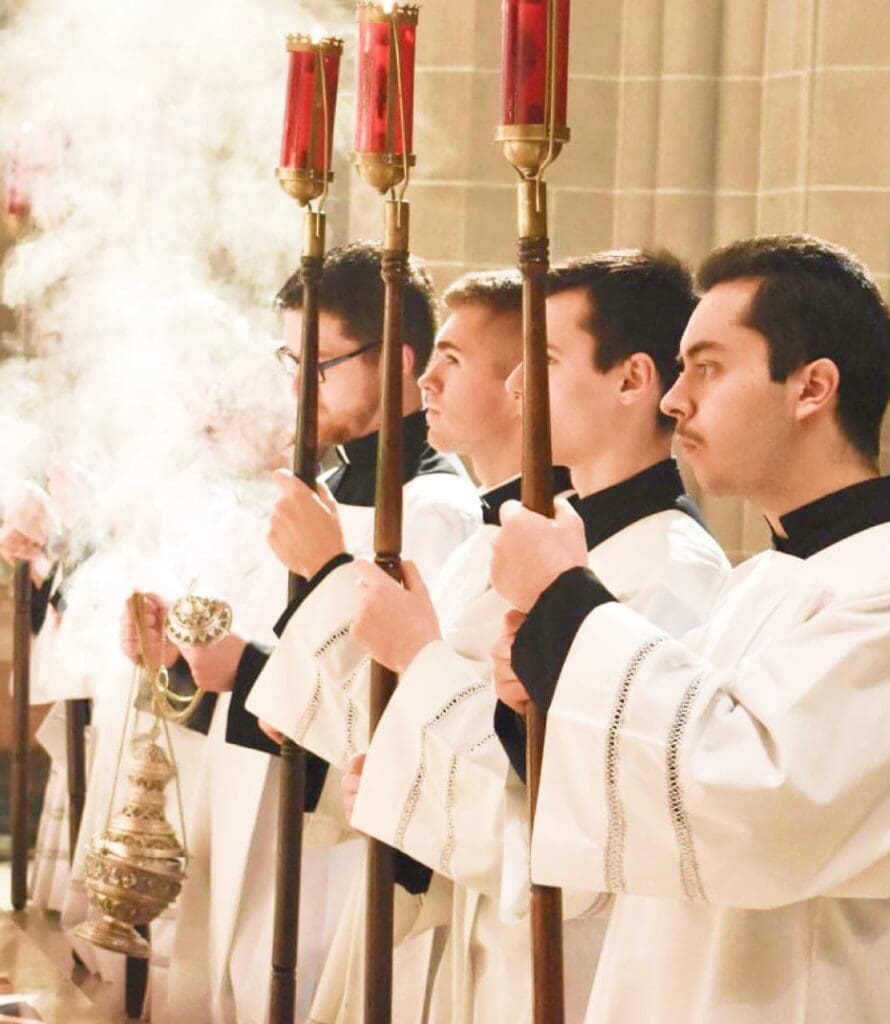I “Know I” Want to Be a Priest
Why do you think you are called to the priesthood?
To answer that question, we have provided a quiz for continued reflection.

Priesthood FAQs
After discerning the first step with a mentor or spiritual director to meet with the vocations director of his diocese or religious order of choice, he then takes the next step to discern with the Church. He walks with the vocations director through the application process to possible admittance into seminary. Once he is admitted and has his bachelor’s degree, he will go through an intensive time of spiritual, intellectual, pastoral, and human formation that lasts 5-7 years.
Priests are responsible for caring for souls and accompanying them to heaven. Such responsibility demands they have gone through the proper formation. Just as a physician requires great study to care for the physical body, a priest needs extensive formation to care for souls.
Typically, this is your home diocese – the diocese where you grew up. If you have lived in more than one diocese, that is a discernment process with your spiritual director. In regards to what seminary you go to, once accepted, you meet with the bishop in collaboration with your vocations director to discuss, among other things, your previous experience and education. The diocese you serve is often tied to a Minor Seminary (to complete your BA) and Major Seminary (to get a Masters in Divinity).
No, if you are in the seminary, it is tantamount to going steady. If you have already received the rite of candidacy, it is tantamount to being engaged. Do you discern marriage with one girl by dating other girls? Seminary is a time of deepening your prayer life and being committed to Jesus as the answer to every question of your heart.
All seminaries have regular time for recreation and leisure. Such things as cookouts, basketball tournaments, and board games are a part of the normal rhythm to life in the seminary. Fellowship is an essential part of human formation in the seminary.
Loneliness is a universal human condition. It is unique to each individual. Every person will experience loneliness if they do not turn their heart to Jesus. The heart in union with God is the heart that is never alone. Priests experience a great deal of fellowship in priest groups and inside the parish community. A priest has many spiritual children to keep him company.
A religious priest is different than a diocesan priest in primarily three ways:
Location: Priests from religious orders are not from a particular diocese. Instead, a superior will tell a religious priest where he will live to carry out his ministry. It could be anywhere in the United States or outside of the country.
Mission: Whereas a diocesan priest serves the daily sacramental and pastoral needs of his parish, a religious priest is at the service of the Church in the ministry areas of teaching, preaching, leading a contemplative life of prayer, serving the poor, and other special areas of need. The life of the priest is largely dependent upon what his talents are and where his superior sends him.
Promises: While both the diocesan and religious priest share some things in common, such as a commitment to praying the Divine Office, obedience and celibacy, there are distinct differences between the two. For example, alongside the vows of obedience and celibacy, a religious priest takes the vow of poverty, which is a renunciation of any personal property and keeping their own salary. Everything they possess is used for the common good.
How We Can Help
Men today rarely have anyone to mentor them through the learning and discernment process.
The High Calling program provides mentors and instructors who propose the truth about one’s faith and one’s own humanity in a way that invites ongoing conversion of life.
While God has planted a seed in the heart of men to take the first step to discern the priesthood, often they are in the dark about how to seek clarity in what is stirring in their hearts.
Below are some specific ways the High Calling program can help.
-
Encounter Christ
We have developed a mystagogical model of instruction, rooted in an ongoing encounter with Christ and spiritual accompaniment. Our pedagogy is intensely personal, and deeply faithful to the magisterium. -
At your own pace
We can provide this program through synchronous and interactive distributed learning methods, organized in three week modules so that men do not need to quit their jobs or make abrupt lifestyle changes, but instead transition into seminary life after a period of sufficient preparation at their own pace. -
Invaluable insights
Our qualified body of faculty offers invaluable insight to the students entrusted to them. Our staff ensures that good communication is provided between those discerning, the vocations directors, and the faculty. -
Healing and spiritual direction
Our program is holistic in its focus, offering healing and spiritual direction to live life to the full. -
Greater clarity
Our modules provide formation in prayer and discernment bringing clarity to one’s vocation.

A faculty consisting of noted priests, ecclesial leaders, and theologians offer up to 13 three-week modules.
Each module is designed to guide applicants through their process of discernment addressing common questions and concerns.

Get in Touch
Has God nudged your heart to consider the priesthood? Take the next step by reaching out to Dr. Joseph Hollcraft.

Joseph Hollcraft
Director of the High Calling Program
"*" indicates required fields



